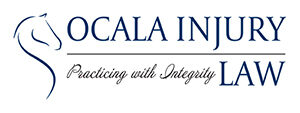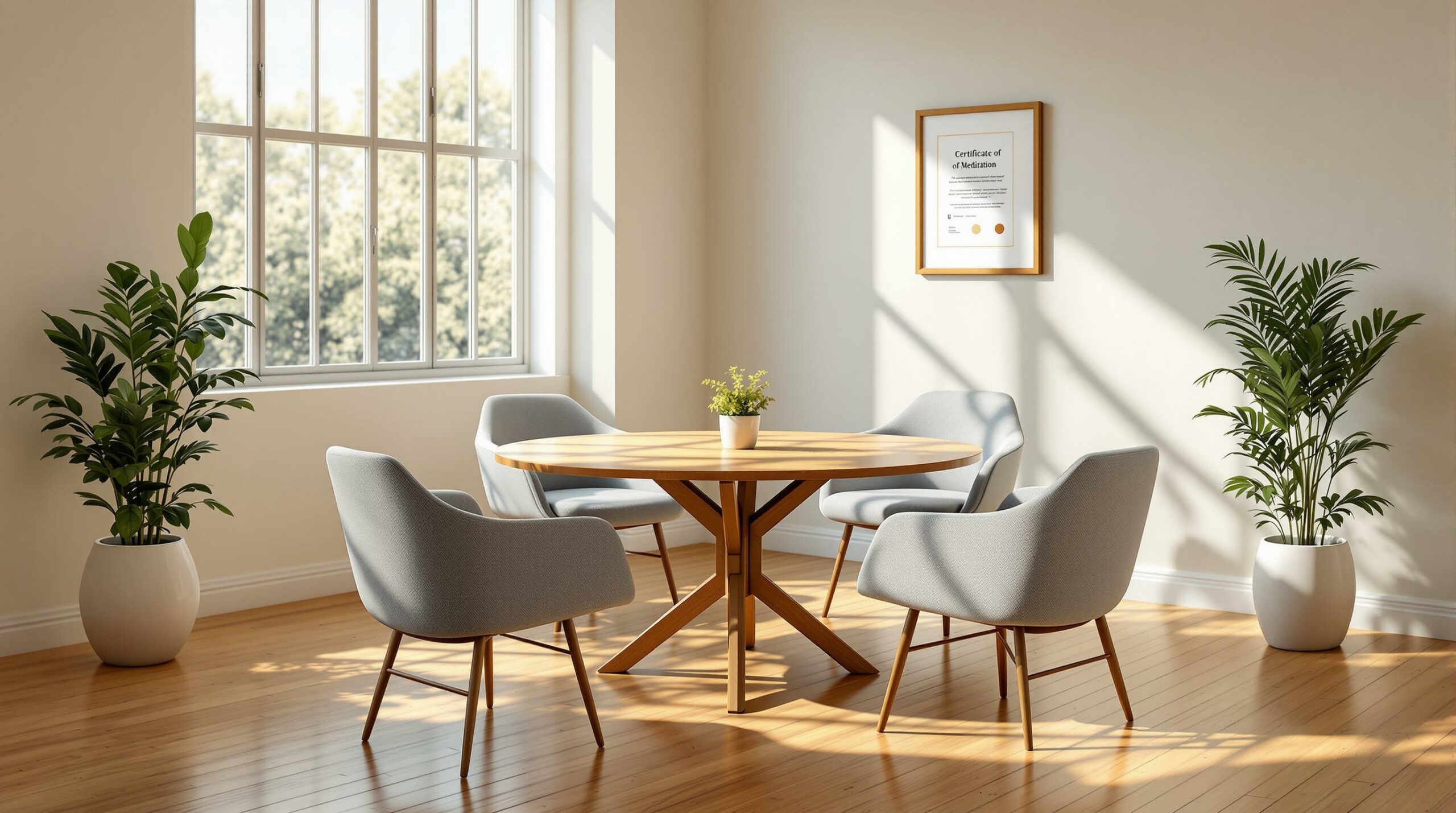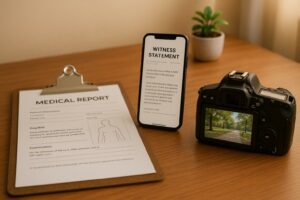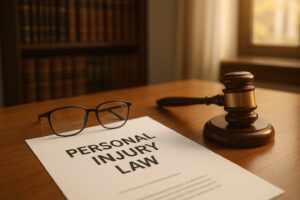Want a faster, less stressful way to resolve your personal injury case? Alternative Dispute Resolution (ADR) might be the solution. ADR, which includes mediation and arbitration, offers a private, cost-effective, and quicker alternative to traditional court cases. Here’s what you need to know:
- Lower Costs: ADR avoids court fees, reduces attorney hours, and speeds up resolutions, saving you money.
- Faster Results: No waiting on court schedules – ADR resolves cases in less time.
- More Control: You choose mediators, negotiate terms, and stay involved in decisions.
- Privacy: Keep sensitive details confidential, unlike public court cases.
- Less Stress: Enjoy a relaxed, cooperative setting that’s easier on your mental health.
ADR is especially helpful for cases like car accidents, workplace injuries, or medical malpractice. Want to know if ADR is right for you? Consult a legal expert to explore your options.
1. Lower Legal Costs
Alternative dispute resolution (ADR) can help cut down legal expenses in personal injury cases compared to going to court. Traditional litigation often comes with high costs, but ADR offers a more cost-effective way to resolve disputes.
Here’s how ADR helps save money:
- No court filing fees or administrative charges: You avoid the extra expenses tied to formal court proceedings.
- Fewer attorney hours: Streamlined processes mean lawyers spend less time on your case, reducing billable hours.
- Quicker resolutions: Cases often settle faster, which means lower overall legal fees.
- No prolonged appeals: Binding decisions eliminate the need for drawn-out appeal processes.
2. Shorter Case Duration
A major benefit of using ADR (Alternative Dispute Resolution) in personal injury cases is the faster resolution compared to traditional court litigation. Court cases can stretch out for months or even years, but mediation and arbitration often settle disputes much more quickly.
Here’s why ADR saves time:
- No waiting on court schedules: Sessions are arranged at times that work for everyone, avoiding delays tied to busy court calendars.
- Flexible meeting times: Sessions can be held outside of standard court hours, including evenings or weekends.
- Simplified processes: ADR skips many of the formalities that slow down court cases, speeding up the entire process.
- Direct dialogue: Mediators facilitate open communication, allowing both sides to address issues directly.
This quicker process means settlement funds for medical expenses, rehab, or lost wages become available sooner. ADR focuses on resolving the main issues without the drawn-out procedures of court cases, helping everyone move forward while details are still fresh.
3. More Decision Power
Alternative Dispute Resolution (ADR) puts you in the driver’s seat when resolving personal injury cases. Unlike traditional court proceedings, where a judge is assigned and makes the final decision, ADR allows you to shape the process and outcome to better fit your situation.
One key benefit is the ability to choose your mediator or arbitrator. This means you can select someone with:
- Expertise in personal injury cases
- Familiarity with similar types of accidents
- Knowledge of medical terms and treatments
- Experience navigating insurance claims
- A history of reaching fair settlements
Beyond selecting a mediator, you also retain the ability to accept or reject settlement offers, withdraw from ADR if you’re dissatisfied, and propose creative solutions. Plus, you can consult with your attorney throughout the process to ensure your interests are protected.
During mediation, you stay actively involved in decision-making. Instead of leaving the outcome in the hands of a judge, you work directly with the other party to reach an agreement. This collaborative approach often results in more satisfying outcomes since both sides contribute to crafting the resolution.
You also have more control over key aspects of the process, including:
- Choosing meeting locations (in-person or virtual)
- Deciding what evidence is presented
- Negotiating settlement terms and conditions
- Structuring payment arrangements
This level of involvement ensures the resolution addresses your specific needs – whether it’s covering ongoing medical treatments or compensating for lost wages.
sbb-itb-68ed374
4. Private Case Handling
Alternative Dispute Resolution (ADR) offers a private way to resolve personal injury disputes, keeping sensitive details out of the public eye. This is especially helpful when dealing with personal or medical issues you’d prefer to keep confidential. By protecting your privacy, ADR not only gives you peace of mind but also supports a smoother path toward resolution.
5. Less Stress
ADR helps ease stress by swapping the high-pressure courtroom for a more relaxed, collaborative setting. This approach is especially helpful for personal injury victims who may already be dealing with physical recovery and emotional struggles. The calmer environment encourages productive, solution-oriented conversations.
Participants in ADR sessions benefit from the ability to:
- Take breaks as needed
- Speak openly about their concerns
- Stay in control of the pace and direction of discussions
Shorter, more manageable sessions also help prevent mental fatigue, unlike lengthy court hearings. Plus, being directly involved in shaping the resolution can reduce anxiety and uncertainty.
Another advantage? ADR’s cooperative approach can help maintain relationships between parties, which is crucial in cases like:
- Workplace injuries
- Disputes with neighbors over accidents
- Medical malpractice claims
- Insurance disagreements
Next Steps
Examining the benefits of ADR – like lower costs and less stress – shows why taking action quickly can make a difference.
To navigate the ADR process successfully, expert legal guidance is crucial. An attorney can help you:
- Assess whether ADR is a good fit for your case
- Choose the most suitable type of ADR
- Organize necessary documents and evidence
- Manage the legal steps involved
- Safeguard your rights throughout the process
For tailored advice, local legal professionals can review your case and determine if ADR is the best option.
Legal expertise plays a key role in improving ADR outcomes. Attorneys can analyze your case, explain your options, and guide you through each stage.
If you’re in Ocala, Florida, and need help with ADR for a personal injury case, Ocala Injury Law provides free consultations. Led by Alida "Ali" Catherine Darias, Esq., their team offers customized legal strategies based on your specific needs.
Here are some important factors to address as you move forward:
| Consideration | Action Items |
|---|---|
| Timing | Consult your legal team about the best time to initiate ADR |
| Documentation | Collect medical records, accident reports, and any other relevant materials |
| Strategy | Collaborate with your attorney to outline a clear negotiation plan |
| Preparation | Review your case details and discuss settlement options |
Having the right legal representation ensures your interests are protected and helps you make the most of ADR.
Reach out to a qualified attorney to see if ADR is the right path for your situation.




